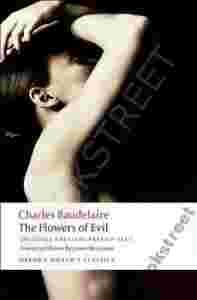|
The Flowers of Evil, which T. S. Eliot called the
greatest example of modern poetry in any language,
shocked the literary world of nineteenth century France
with its outspoken portrayal of lesbian love, its
linking sexuality and death, its unremitting irony, and
its unflinching celebration of the seamy side of urban
life. The volume was seized by the police, and
Baudelaire and his published were put on trial for
offence to public decency. Six offending poems were
banned, in a conviction that was not overturned until
1949. This bold new translation, which restores the
banned poems to their original places and reveals the
full richness and variety of the collection, makes
available to English speakers a powerful and original
version of the world. Jonathan Culler's Introduction
outlines this vision, stressing that Baudelaire is more
than just the poet of the modern city. Originally to be
called 'The Lesbians', The Flowers of Evil contains the
most extraordinary body of love poetry.The poems also
pose the question of the role of evil in our lives, of
whether there are not external forces working to
frustrate human plans and to enlist men and women on
appalling or stultifying scenarios not of their own
making. ABOUT THE SERIES: For over 100 years Oxford
World's Classics has made available the widest range of
literature from around the globe. Each affordable volume
reflects Oxford's commitment to scholarship, providing
the most accurate text plus a wealth of other valuable
features, including expert introductions by leading
authorities, helpful notes to clarify the text,
up-to-date bibliographies for further study, and much
more. |
|

